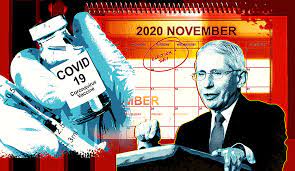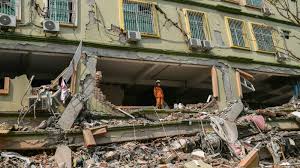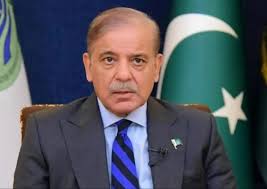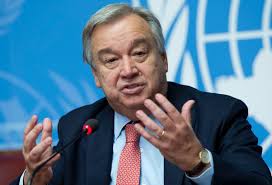VACCINE POLITICS

At the start of the pandemic, there was a lot of talk about the world being ‘in this together’. But as vaccines are rolled out, this rhetoric of global ‘togetherness’ is fast disappearing.
China, Russia and the West stand accused of having sought to use vaccines to “project their soft power” and competing for influence and goodwill. For instance, of the 72 countries to which China has pledged doses, all but two are participants in its Belt and Road Initiative, an ambitious global infrastructure project that aims to increase Chinese influence, develop new investment opportunities and strengthen economic and trade cooperation across select countries.
But as Western nations stockpiled supplies for their own populations, China sent vaccines overseas — this month, the Chinese foreign ministry announced the country had delivered over 500 million Covid-19 vaccine doses to more than 80 countries. That mission highlighted inadequate Western efforts at a time when tensions between China and many major democracies were running high.
China is also seeking to counter critical views, following criticism regarding its repression in Hong Kong and Xinjiang, by vaunting its economic success, scientific and medical achievements, culture and language.
Russia is also leveraging its early export of vaccines. It misses no chance to accompany offers of vaccine or joint production to Eastern Europe and the Balkans with soft-power messages, dwelling on European failures and highlighting Russian support for countries covered by the European Union’s (EU) enlargement and neighbourhood policies.
The Special Assistant to the Prime Minister on Health, Dr Faisal Sultan, receives a consignment of Covid-19 vaccines from China | Tanveer Shahzad/White Star
The West is now looking to play catch up in ‘vaccine diplomacy’ with G7 pledging almost a billion doses by the end of 2021 for poorer countries. President Biden has promised to help vaccinate the world with “with no strings attached”. The politics, however, is taking an insidious turn, with Western media campaigns that look to discredit the efficacy of Chinese vaccines. These have been described by China’s foreign ministry as a “bias motivated smear”.
The other side has also been hitting back. European Council President Charles wrote recently: “We should not let ourselves be misled by China and Russia, both regimes with less desirable values than ours, as they organise highly limited but widely publicised operations to supply vaccine to others.”
Russia, on the other hand, accuses the West of not authorising the Sputnik V vaccine for political reasons. And while health experts and the WHO publicly acknowledge the effectiveness of Chinese and Russian vaccines based on real world data, doubts regarding the most widely available vaccines till date have the potential to fuel vaccine hesitancy and undermine efforts to end the pandemic.
The use of vaccine passports and the politics surrounding them, where some countries refuse to accept Chinese vaccines and where China doesn’t accept Western ones, adds to global economic woes.
Recently, the EU has gone so far as to disallow AstraZeneca made in India for travel purposes in the block.
The United Nations Conference on Trade and Development reports that even with more of the world’s population vaccinated, tourism losses this year alone could amount to between 1.7 trillion dollars and 2.4 trillion dollars. This is despite an expected rebound in travel in countries such as France, Germany, the UK and the US.
Yet, while failures of equity and collective action abound in vaccine production and distribution, efforts are also underway to address them.
MOVING FORWARD
Stephan Bancel, the CEO of Moderna, has launched the ‘Never Again’ programme to set up effective global surveillance of viruses that could seed the next pandemic and to establish mRNA vaccine factories around the world.
The idea is to avoid the losses in lives and livelihoods that the lack of production capacity continues to inflict on the world today. With mRNA technology, vaccines can now be produced within hours, as opposed to years. The Moderna vaccine, for instance, was engineered within 48 hours of the virus genome being sequenced.
The main constraint to mass roll-out of vaccines has been production capacity. The programme envisages public-private partnerships to ensure that capacity to produce is available for the whole world at any given time. While this is a longer-term solution, it is hopeful nonetheless.
Another hopeful sign for mass global vaccination is that, as production increases, the problems of scarcity and high pricing of vaccines shall begin to abate in the months ahead. The global production of Covid-19 vaccines is estimated to be well in excess of 17 billion doses per annum over the next 12 months. Given that over three billion doses have been administered, and the maximum total global requirement (assuming a two-dose regimen) is around 14 billion doses, a wide surplus of vaccines is projected in the months ahead. This is so even if we account for the requirement of booster shots.
As the unchecked spread of the virus spawns new variants and renders high economic costs and tugs at the consciousness of our collective morality, it is critical that the world works together to ensure wide availability of vaccines and help vaccinate everyone. Global initiatives such as Covax, the Coalition for Epidemic Preparedness Innovations (Cepi) and the WHO need to be strengthened to beat this pandemic and guard against future ones. No one is safe until everyone is safe.
The writer is an economist and entrepreneur





